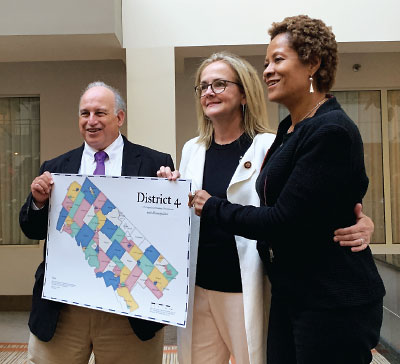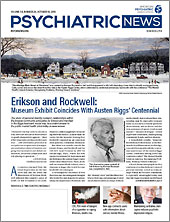The Area 3 Council held its first legislative institute last month, with the goal of not only inspiring members to remain or become involved in advocacy through their district branches, but also to give them methods on how to effectively do so.
Consisting of five district branches—Delaware Psychiatric Society, Maryland Psychiatric Association, New Jersey Psychiatric Association, Pennsylvania Psychiatric Society, and Washington Psychiatric Society—Area 3 was inspired to put the institute together by Area 4, which has been holding similar events for over a decade. They were begun by John Wernert, M.D., a former chair of the APAPAC Board of Directors, and are now organized by Shastri Swaminathan, M.D., Ken Busch, M.D., and Bhasker Dave, M.D.
“Most legislators don’t have a background in medicine or science, so they’re not oriented to what real care delivery is,” said Area 3 Representative William Greenberg, M.D. “They’re not part of that system, so they need to hear from all sides, and we have to be vocal.”
The institute provided training tips for members on how to effectively advocate and communicate with lawmakers. It included a presentation by staff of APA’s Department of Government Relations, who offered tips on how to effectively advocate, such as framing issues in terms of their potential impact on patients and the importance of being concise.
Building relationships was a key takeaway: If lawmakers have already met with a psychiatrist in their district, they might be more inclined to reach out should a mental health–related bill cross their desks.
Legislation is often reactionary, pointed out Deb Shoemaker, executive director and lobbyist of the Pennsylvania Psychiatric Society, who hosted the event along with Ken Certa, M.D., Area 3 Trustee. That’s why it’s important for members to build connections with lawmakers and have someone to whom they can turn for a health professional’s point of view.
“Legislators like to have contacts in the community, and if you’re a psychiatrist in the community, you’re also something of an expert,” Greenberg said. The institute featured Pennsylvania Rep. Todd Stephens (R), who spoke on the effort to pass Extreme Risk Protection Order legislation, which allows for court-ordered, temporary firearm removal for individuals deemed a danger to themselves or others. It also included Area 2 Trustee Vivian Pender, M.D., who discussed her work representing APA as a nongovernmental organization at the United Nations, and a panel of five Area 3 Council members, who shared their advocacy experiences on a variety of issues, including access to care and medical marijuana.
Attendees included members from all Area 3 district branches. Both Shoemaker and Greenberg pointed out that issues often impact multiple states, so it’s important to share resources, experiences, and lessons learned related to advocacy between states and district branches.
“A major difficulty for psychiatrists is that most of us are working full time, and mostly during the day,” Greenberg said. “We’re often not as available as we might like to be to advocate for issues important to us.” But there are still ways psychiatrists can get involved, he said, even around their busy schedules. Writing letters or sending emails can be effective, he and Shoemaker pointed out.
Greenberg also suggested that members participate in their district branch’s Advocacy Days, and he stressed that members should coordinate their advocacy work with their district branch, their advocacy leaders, and lobbyists.
Psychiatrists have a unique perspective on health care that is often missing from the legislative debate. “Their clinical expertise is something I can’t give,” Shoemaker said. ■
APA members interested in learning more about advocacy can contact Erin Philp, director of state government relations in APA’s Department of Government Relations, at
[email protected] and visit APA’s Advocacy Center
here.

